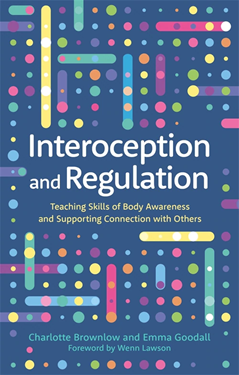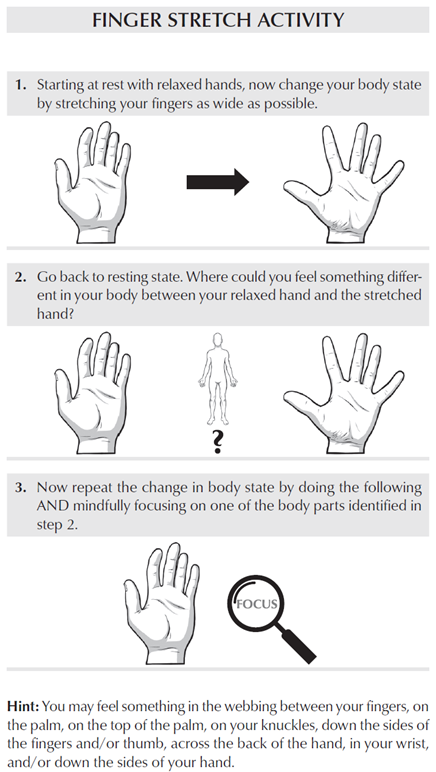Educational Researchers, Dr. Charlotte Brownlow and Dr. Emma Goodall, reflect on the steps that led to turning their research into a practical book for parents, professionals and autistic individuals. ‘Interoception and Regulation: Teaching Skills of Body Awareness and Supporting Connection with Others’ is available now.
Co-authors, and Educational Researchers, Dr. Brownlow and Dr Goodall.
What do body awareness, connection with others and quality of life have in common? Actually, quite a lot. Without body awareness we are not in touch with our feelings and emotions and can struggle to express ourselves in helpful ways. So, when we are getting angry we may not notice the anger and it will build into rage which will erupt uncontrollably. It is much harder to connect to others and have a good life when we cannot manage or even recognise our own emotions and feelings.
There are some things that many of us take for granted in terms of our knowledge and understanding such as how we know we are hot, or hungry, or need to go to the toilet. But how do we know these things and why do some people struggle to recognise them? Describing these feelings accurately can be difficult. Also, we sometimes don’t interpret the signals accurately and as a result we commonly hear of people being referred to as ‘hangry’ or ‘over-tired’, suggesting that we might not always recognise some of the core internal cues in time before they begin to affect our outward behaviours.
Misinterpretations of internal bodily states are common in children, but it is not only children who sometimes mis-read or overlook internal cues, this can happen for adults as well. The ability to recognise our internal cues is referred to as interoception. This book is designed to introduce you to the concept of interoception and its importance and impact on a range of behaviours, while keeping a practical focus on what you as a parent or carer or professional might do to support interoceptive abilities in the people that you love, support, or teach.
Emma and Charlotte’s book will take you on a journey and help you to identify the qualities of interoception, often known as your eighth sense or mindful body awareness/biofeedback. They explore what each quality of interoception means and how to support your own or others’ connection with your/their emotions. It’s only once we can do this that we are able to self-regulate, self-sooth, and self-acknowledge. In being able to do these things for ourselves we can recognise them in others and can become more resilient, less judgmental, and more compassionate.

Emma first became interested in interoception following requests from schools who she worked with asking for help in supporting students to self-manage and self-regulate. The consequences for schools of students not being able to effectively do this frequently resulted in poor engagement with learning and even regular suspensions and exclusions. Delays or difficulties with self-management and self-regulation in children and young people therefore come with a high cost to those individuals themselves, as well as their peers, families, and involved professionals.
The wide-ranging negative impact of poor self-regulation means that it is important to support individuals, their families, professionals, and the education system to effectively improve children’s self-regulation, especially as related to self-management needs, which can be among the most pressing demands for self-regulation. This is just as true for adults who struggle to recognise and manage their own emotions and feelings.
Interoception, the ability to identify and act on physical sensations inside the body, is crucial to human well-being. It underpins physical developmental milestones, such as toilet-training, as well emotional ones, such as the ability to self-regulate. Research shows that Autism along with a range of other neurodevelopmental differences, often co-occur with poor interoceptive sense. Interoception is crucial to individuals being able to connect to self and self-manage their behaviour. This in turn helps them to connect with others in helpful ways, including to make and sustain friendships.
Emma and Charlotte present a range of interoception activities that have been shown to enable individuals over time, to connect to themselves. These activities are simple to do and don’t require any equipment of specialised training. Individuals, parents, educators and other professionals will develop an understanding of how and why the activities help to both calm in the short term as well as improve interoception skills in the longer term.

Emma and Charlotte’s top tips for working with someone on their interoception are to:
- Engage with the individual at a level that makes sense to them – explicitly label emotions and feelings to help scaffold their own understandings of their internal states.
- Remember you are not responsible for other people’s emotions – you can support these but not control them.
- You need to provide the necessary tools to support people doing that for themselves.
- Interoceptive abilities (or lack thereof) are not ‘good’ or ‘bad’. It is not an individual’s fault that they are not in tune with their own body’s signals. They may, however, need support to recognize and work with these.
- Make sure you find time to look after yourself. You need to be in tune with your own bodily signals and recognize when you need rest or support if you are going to be helpful in supporting others.
Get your copy of Dr. Goodall and Dr. Brownlow’s excellent book, ‘Interoception and Regulation: Teaching Skills of Body Awareness and Supporting Connection with Others.’

